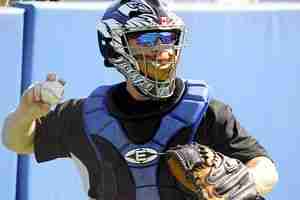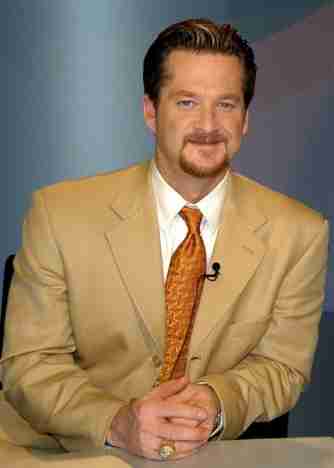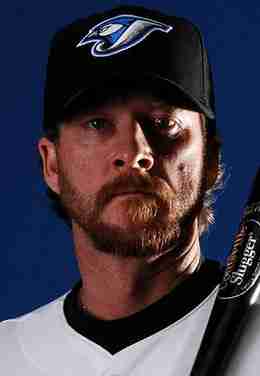Ernie Whitt shared the catching role with Buck Martinez and despite not being an everyday player; he was one of the most popular players in Toronto. Whitt looked like an everyman; a man who reminded you of one of your good friends, or a favorite uncle. When the camera was catching him in the dugout, he always seemed to have a smile on his face. He had a workman like attitude on the diamond, and fans in Toronto always knew that he gave it is all. For Toronto (and Canada in general) still trying to establish their place on the International Sports scene, it was easier for them to identify with the hard working humble player, than with the superstars.
Twenty years later, the baseball landscape was much different in Toronto. They won the World Series back to back in 1992 and 1993; however after the strike in 1994, the Blue Jays struggled to make the playoffs and the regular sellout crowds were a thing of the past. The Maple Leafs had returned as the city’s big sporting draw, and Jays which once had the highest payroll in Major League Baseball, now struggled to compete in their own division and were labeled a small market team in the shadows of the New York Yankees and the Boston Red Sox.
Although the Leafs were the popular team in Toronto again, one thing hadn’t changed with the fans was their gravitation towards the gritty workman like players. Finesse players were always welcomed by the fans in Toronto, but never fully loved. This type of attitude transcended towards the city’s baseball team and when Gregg Zaun signed as a Free Agent in 2004, they found someone they could identify with on the diamond.
Zaun received his biggest opportunity for playing time in Toronto and he enjoyed his best success there. Much like Whitt, fans identified with Gregg Zaun, and respected his hardnosed style of play. Furthermore, the catcher’s likability factor increased when hearing his interviews. Zaun did not dispense the standard post game clichés that many athletes did; rather he was direct and honest, though never at the point of being disrespectful. Sure, he was a millionaire athlete, but he seemed approachable; If you were a kid, he was the cool uncle you wanted to have or if you an adult, the guy you wanted to (and felt like you could) hang out with at the neighborhood bar.
Zaun would play for the Blue Jays for five years and although he did not retire in Toronto, one of Canada’s national sports networks, Sportsnet signed him to work on Jays broadcasts. Although Gregg is not a Canadian, he was adopted by them as one of their own; essentially by signing with Sportsnet he was coming home.
We had a chance to speak with Gregg about the transition from player to broadcaster and the state of the game today.
 The Transition from athlete to broadcaster can’t be an easy one. You are relatively young and many of the players in Major League Baseball were either your teammates or opponents. How do you transition from a place where these are your friends, to a position where you have to be critical of people who you may have a personal relationship with?
The Transition from athlete to broadcaster can’t be an easy one. You are relatively young and many of the players in Major League Baseball were either your teammates or opponents. How do you transition from a place where these are your friends, to a position where you have to be critical of people who you may have a personal relationship with?“For me it’s fairly easy. I was pretty objective about their play when we were friends, except I wasn’t on television. I was a veteran guy at the end of my career so I was already a mentor type to the younger guys. But as far as the transition goes, it is cut and dry with me. I have great respect for the game, but I don’t want to sugarcoat reality. I will call like it is because I have a reputation for that. I am a pretty straight forward guy and that is how I approach my broadcasting.”
That makes you more of an exception as many broadcasters who were former athletes are often criticized for being siding too much towards players, where they may make excuses why a certain player may not come up with a ground ball.
“I’m not going to lie about what I see. I know how hard it is to play the game, but at the same time it is my job to analyze what I see. Errors happen. It is about how you word it. I will be the first one to tell you that he should have made the play, or he should have been positioned here. We all break down mentally at times during the course of a season. It happens. I won’t ever get personal. It is just analyzing a performance. If it’s good, I am going to talk about how good it was; if it’s bad, I’m going to talk about how poor it was and maybe suggest a different way the next time.”
As a former Catcher, which is viewed as the hardest position in baseball, what were your memories of the daily grind that you would have to go through? Like, was there any pitcher that you may have dreaded having to catch?
“There were a ton of guys like that; far too many to mention. For me the daily grind; early in the day it was sometimes tough to get out of bed. Certain things on the body would hurt; it would take a while to get moving. My love of the game, my passion for it got me going every day. Once I got to the park it was the mental grind of trying to get prepared. I looked at a lot of film, made sure that the scouting reports were up to date, and all the preparations of getting ready to play.”
You are now broadcasting in Canada. Do you feel almost as an adopted Canadian?
“Totally. The fans (in Toronto) were always good to me. I think they looked at my style of play, and it was a blue collar, hockey mentality though playing baseball. I wore the hockey style mask. I think they enjoyed the way I blocked the plate. For me, I had the best years of my career here, and I got my chance to broadcast here first while I was still playing. It made sense for me to come back here. There was no other choice in my mind; I knew where I wanted to be. Toronto felt the same way. When I retired, I had a contract (from Sportsnet) four days later so it was pretty cool.”
One thing that boggles my mind as a baseball fan and to put it in context I am 40, are some of the current statistics used. There are many new statistics being used, and although some of them like the WHIP should have always been used, but with Sabremetrics there are just so many stats being used to decipher what makes a ballplayer great that it takes a bit of fun away as a fan. When you started, Sabremetrics were not in vogue, and when you retired you could not escape them. As a former player, I would love to hear your take on this. Do you feel that maybe baseball which has always been a game about statistics, has moved too far in that direction?
“I think it has. What bothers me about it is that people think they know what these stats mean. I’ll be honest with you; I don’t know half of it. When I walk around the ballpark and I’m hanging around with the guys; I’ve been around a long time, I know what a ballplayer looks like. I know what a ballplayer moves like. That’s the one problem I have with the new thinking is that you can break a player down by statistics, and I don’t think you can do that.
This whole Moneyball thing and Sabremetrics has proven to not be that successful. I think that you’re going to see a trend of baseball people going back to hiring baseball people to run their business. The way I look at it is, I don’t care what college you went to, I don’t care what stats you quote me; I would never hire someone who’s never built a home before to build my house. Just because they read a book about it, doesn’t mean they are going to be able to do a good job. You have to have practical on the field experience to really get it. That’s the way I feel about it. I like the idea of people who have actually played the game making the decisions about baseball players lives as they have a working understanding of the game. That’s why I don’t pay a lot of attention to a lot of these new statistics because baseball people did not come up with it.”
Is there any one of the new statistics that you do like or think is useful?
“Yeah, the OPS I like. I’ve always looked at run production a little bit differently. I look at a guy who is a run producer and say lets add his RBIs to his Runs Scored and we will subtract the number of Home Runs from that total and that will give you a true level of his run production. If you are a guy who is approaching a one, than you are producing Runs. It takes into account not only the ability of a guy to drive them in, but score them himself once that guy gets on base.”
On our site, when we look at those who are Hall of Fame contenders, we look at their top ten finishes on all of the traditional stats, but also OPS and WAR. I will admit I can’t off the top of my head tell you the equation for WAR, but it is fairly prevalent now.

“I know that when I was playing the ERA when I was behind the plate was good, and we won a lot more games than we lost.”
There is something about old fashioned baseball stats though. There is a thrill when you see one of your favorite players hit that 500th Home Run. These milestones matter. A lot was made when the fan gave back the 3,000 hit from Derek Jeter. You can’t really itemize the exact moment that a player hits a 100 lifetime in WAR.
“I just look at the position that I played. There really is no way to measure how many pitches a Catcher gives you or takes away from you in the course of a ballgame. How many pitches he blocks VS how many Wild Pitches he lets through. Those are a quarter of a run in my opinion. You look at if a guy can’t catch and he can’t block, well it is really tough to measure it statistically. Everybody’s looking for those other stats.”
Wait for it; they will come up with a stat for that too!
“(Laughs) we’ll see how that goes! That is why you need baseball people to come into play. They know what to look for.”
I’ll leave you with this question, which you don’t have to answer if you don’t want. Much has been made of suspected PED users and the Hall of Fame. Up front, I will say that my personal belief is that Bonds, Clemens and Sosa, who are now on the ballot, are Hall of Famers.
“I totally have an opinion, and I don’t mind sharing it. To me, there is no way to tell without the smoking gun who took what. The bottom line is there is no way to prove when they did take them, or even if they did. The numbers are there and that is the only thing that should matter. If their numbers are deserving, and they all are, they should be in there. In my opinion, they are all first ballot Hall of Famers; Bonds, Clemens, Sosa, McGwire. I don’t care what they may or may not have done.”


 They had an outfield that the Canadian media dubbed the “Best Outfield in Baseball, consisting of 1987 MVP George Bell, Jesse Barfield and Lloyd Moseby. They had one of the top aces of the American League in Dave Stieb and a slick hitting Shortstop in Tony Fernandez. It was a collection of All Stars that gave a city a sporting pride that the national sport of hockey wasn’t able to provide. Despite this collection of talent, for many Jays fan it was a platooning Catcher who was their favorite.
They had an outfield that the Canadian media dubbed the “Best Outfield in Baseball, consisting of 1987 MVP George Bell, Jesse Barfield and Lloyd Moseby. They had one of the top aces of the American League in Dave Stieb and a slick hitting Shortstop in Tony Fernandez. It was a collection of All Stars that gave a city a sporting pride that the national sport of hockey wasn’t able to provide. Despite this collection of talent, for many Jays fan it was a platooning Catcher who was their favorite. 
Comments powered by CComment